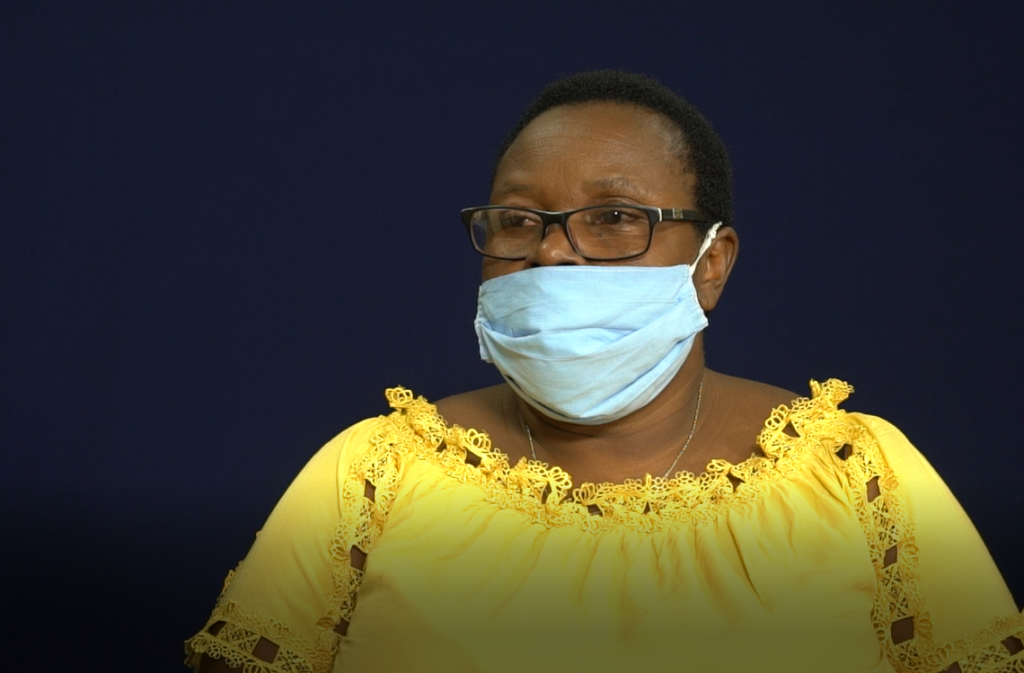Cousins diagnosed with kidney failure seek assistance
By Isanella Patoir
Cousins Rahaim Francois, 23, and Rickquan Robertson, 18, are both battling with end-stage renal failure (kidney failure). The cousins are now dependent on weekly dialysis treatment for survival as they await kidney transplants.
They have been unable to find compatible donors. During an interview with the News Room on Monday Francois’s mother, Bernadette Francois explained that because more than one relative is suffering from the disease, no family member can be a donor.
As such, the cousins are hopeful that the legal framework for cadaveric or brain dead organ donor transplants will materialise soon. This may be the only option to save their lives as well as many others with no donors.
Prior to August 2020, Rahaim was living a normal life. He was working as an operations officer at Air Services Limited. This all changed drastically for the Ituni born young man after he was diagnosed.
“When I was diagnosed it hurt because knowing someone like me who don’t drink or smoke, it was difficult.
“I not only questioned myself, I questioned God and asked why someone like me, doing everything possible to have a healthy life and to find out that you have kidney failure and not just only kidney failure, end-stage kidney failure,” Rahaim told the News Room.

His diagnosis followed six months after Rickquan was diagnosed with the same condition.
Rickquan of No.21 Village, West Coast Berbice, was a student of the Fort Wellington Secondary School and was preparing for the 2020 Caribbean Secondary Education Certificate Examination when he was diagnosed. Due to his condition, Rickquan had to drop out of school. For him, it took a while for his diagnosis to register.
“When I first find out that I had kidney failure I didn’t believe it because I never knew that it would happen to me.
“I used to watch TV and say, these stuff cannot happen to me. And after a while on dialysis, like half a year, I started to believe that I really get end-stage kidney failure,” Rickquan said.
Both Rahaim and Rickquan have to undergo dialysis three times per week at a cost of $12,000 per session at the 5G Dialysis Center in South Ruimveldt Georgetown. The treatment has taken a toll on the boys’ families, both financially and physically.

“Dialysis is a means of survival, but it is also damaging to our bodies. It damage our bones, brains, eyesight and everything. It is just something to keep you going for a while but a transplant is the goal,” Rahaim stated.
Rickquan’s mother, Tracy Archibald, a housewife and mother of three, travels from Berbice three times a week just so her son could be treated. With the boy’s condition, they also cannot travel in public transportation especially during the COVID-19 pandemic.
“He used to have some vomiting and weakness and so on so I decided to take him to the doctor to do some checkup and that is when we discovered he has kidney failure. His health condition is getting worse, he’s getting worse and he cannot help himself most of the times,” Tracy related.
Meanwhile, for Bernadette, who is a single mother of four and works as a school janitor, it has been difficult since Rahaim’s diagnosis. She revealed that some days it is almost as if he is a toddler again.
“Before the doctors diagnosed him with kidney failure he just used to complain of tiredness and sometimes he was a bit dizzy. It is rough still so far, because many times he is right back to a toddler stage, you have to do everything for him,” Bernadette said.
Both mothers initially wanted to be donors to the boys but as a result of more than one family member being diagnosed with the kidney failure, this is not possible. The mothers explained that they then sought other donors but they were either not a match or opted out.
Meanwhile, the Georgetown Public Hospital Corporation continues to fight for the necessary legislation to save lives and help resolve the burden of kidney failure in Guyana. This can be done through cadaveric transplants, where organs are harvested from brain-dead patients and donated to others. The public hospital has the capability and equipment for this operation but there is no legislation to govern it. However, there is now some hope for kidney failure patients.
The Human Organ Transplant Bill is expected to be presented in Parliament on or before May 2021. The Guyana Medical Council along with the Head of Department for Multi-Organ Transplant and Vascular Access Surgery, Dr Kishore Persaud, and his team from the Georgetown Public Hospital earlier this month met with the Minister of Legal Affairs and Attorney-General, Anil Nandlall. The meeting dealt with enacting legislation to govern human tissue transplant to the body of another living person and ethical issues relating to this operation.
“I think it would be a good thing because it’s not only benefiting us, in the long run, it would benefit people like us who do not have a donor and just like us most persons would need two transplants in their lifetime.
“Finding one donor is hard enough much less to find someone in the next 15 years when you would need another transplant,” Rahaim said as he shared his thoughts on the legislation.
In the meantime, the boys’ health condition has taken a toll on both families financially and in order to keep up with the costs for treatment and other expenses, they are requesting assistance. Persons willing to contribute to helping the family can contact +592 608 0482, +592 651 4404 or +592 671 3358.







